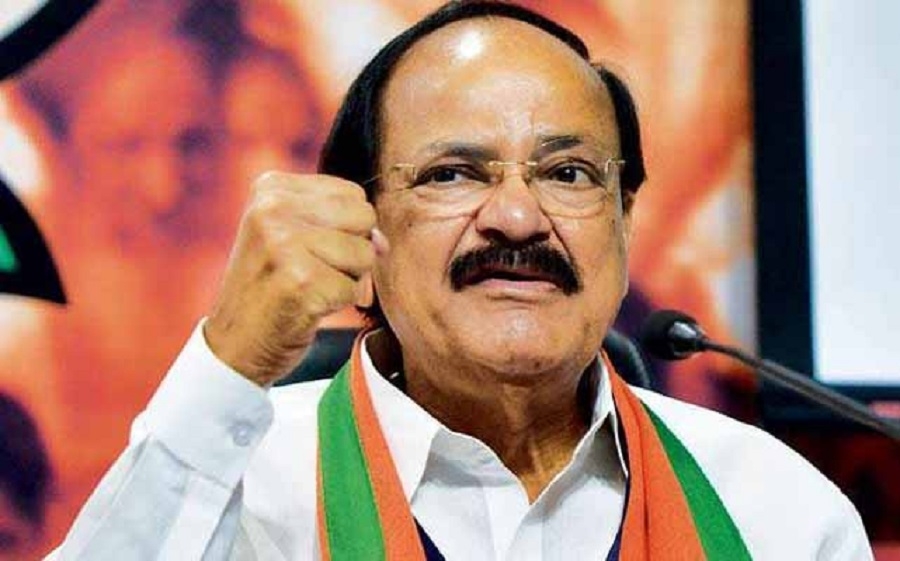FARM REFORMS
| Date :25-Feb-2020 |

VICE President Mr. Venkaiah Naidu has given an apt call to agriculture scientists, students and universities to come up with innovative and new solutions to challenges before the farming sector. This is in the background of the need to pull the farmer and the farming sector out of the crisis which is reflected in the mounting cases of suicides by debt-ridden farmers. It is a big socio-economic issue that has great bearing on the country’s economy as well as food security of the nation.
As the world gears up to face consequences of global warming it is imperative for agricultural scientists to come up with solutions which will have the potential to negate the adverse effects of climate changes which are already visible in several parts of the world and India is no exception to it. It is in this light that the advice of the Vice President holds great significance. The Central Government, on its part, has already taken some measures like crop insurance, direct benefit transfer of subsidies, assured and quality power supply, access to banking credit etc. The Government has also set a target for itself to double the income of farmers in the next few years. Some state Governments have also announced loan waivers for farmers. But as rightly said by Mr. Venkaiah Naidu, loan-waiver is hardly a solution to the distress that the farmer is undergoing. It is only a temporary relief but is a recurring phenomenon, a vicious circle.
A permanent solution has to be found to this issue. Because of the uncertain nature of farm incomes which largely depend on weather patterns as well as market conditions, the farmers are always at the receiving end of both. It is this uncertain nature of farming and farm incomes that has to be addressed on priority and with urgency. Otherwise there is no escape from the farmer being debt-trapped and finding no solution to it, he will be compelled to end his own life. That has been the story all these years. There are some pockets in the country like Maharashtra’s Vidarbha, Marathwada which are perpetually under the shadow of droughts. Scanty or excessive rains have been the bane of agriculture and the agriculturist. The Central Government has laid special emphasis on creating irrigation facilities and has launched special scheme to undertake centrally-funded irrigation projects. Thus it will be a great help to fund-crunched states to construct irrigation projects on a priority basis.
Thereby the intention is to reduce farmers’ dependence on rains and ensure assured water supply whenever and wherever required. This will reduce the farmers’ dependence on rain water. Climate change is expected to impact weather patterns very drastically in the coming years. And this is the challenge that the agricultural scientists, students studying agriculture and farmers themselves have to find solutions. This calls for technological changes, cropping patterns, crop cycles that are capable of withstanding climate changes etc. The nation’s agriculture needs urgent reforms that can offer solutions to the challenges facing the farmers. No doubt the country has moved far away from the ‘begging bowl’ spectre and has turned into a net exporter of some of the agricultural produce. But the country still remains dependent on some imports like the edible oils and oils seeds.
Thus this becomes clear that there is a scope for diversification of crops by the farmers. Besides, to make farming sustainable the farmer has to lessen his dependence on farm produce and diversify into allied, supportive activities like fisheries, dairying, poultry, horticulture etc. While thinking of agricultural reforms there is also need to link changes in the sector to rural development. They are two sides of the same coin. Thus rural development and agricultural reforms must go hand in hand.